#joe smooth
Text
'Filmyhype.com Ratings: 4.5/5 (four and a half stars)
Freely based on the novel of the same name by Taichi Yamada, All of Us Strangers is the new film by Andrew Haigh starring Andrew Scott, Paul Mescal, Claire Foy, and Jaime Bell. After being presented at the Telluride Film Festival in August 2023. All of Us Strangers is a journey into loneliness, resentment, and the importance that, for better or for worse, our families have on us. But it is also a story of love, acceptance, and forgiveness. “Every love story is a ghost story”, read the title of the biography dedicated to David Foster Wallace, a brilliant author who died too soon after an uninterrupted struggle with the specter of depression. A prophetic title, because truly every human relationship is populated with ghosts, shadows of the past that each of us carries with us as a legacy every time we transmigrate from an old story to a new one, when we make another friendship and perhaps close one historical, as well as when it puts an end – not without pain – to a bond with someone you loved very much, from a lover to a close family member.
And director Andrew Haigh (Weekend, 45 years old) seems to have unconsciously made this title-mantra his own, outlining through the new film he directed – and wrote – a dramatic ghost story, which is in reality much more: we are talking about All of Us Strangers). Presented as an Italian premiere at the 21st edition of Alice nella Città, the film brings together a cast of British excellence on the screen, starting from Andrew Scott (Fleabag) through the very popular Paul Mescal (Aftersun) up to the rediscovered Jamie Bell (Rocketman) and Claire Foy (Women Talking) to tell a modern story of solitudes that meet at the wrong time, of tragic wounds difficult to fill with the gold of Kintsugi and much broader reflections on sexual and even national identity, as demonstrated by the London location. And right in contemporary London, during an ordinary night, the screenwriter Adam (Scott) has a chance encounter with a mysterious neighbor, Harry (Mescal).
They both live in the same almost empty apartment building, they need company and don’t want to spend the night alone, especially Harry: this meeting will break Adam’s routine and, while the two continue their relationship, the screenwriter never stops being obsessed with the fragments of his past, wandering through the terraced houses on the outskirts where he grew up and among which he finds not only his old house but also his parents, who seem to still live there exactly as he left them, thirty minutes later. years after their death. All of Us Strangers is a cosmic melodrama and a torn fantasy, which passes from the tactile to the phantasmatic, isolating the characters in a landscape suspended between an alienating center (a practically uninhabited London building) and an idealized suburb (a villa surrounded by greenery) and connected by a train running on tracks beyond the laws of this world.
All of Us Strangers Review: The Story
London, 2023. We enter the apartment of a screenwriter, Adam (Andrew Scott) that’s his name, with an apparent writer’s block exacerbated by a tragic past. He lives alone in an uninhabited building, or almost so. Thanks to the unmotivated triggering of the fire alarm, Adam, once on the ground floor, discovers that he has only one neighbor, whom he glimpses by scanning the upper floors. The two strangers find themselves face to face only thanks to the cheekiness (fueled by the Japanese alcoholic drink he holds in one hand) of Adam’s only neighbor, Harry (Paul Mescal) who would like some company. He feels alone, he jokingly states that there are “vampires at his door”. Embarrassed and intrigued, Adam declines the offer.
From this moment on, Haigh’s caressing direction transports us into a dreamlike atmosphere, to say the least, in which our protagonist’s past slowly emerges. Orphaned at the age of 12 due to a car accident that took his parents away from his life. To overcome the creative block that afflicts him, Adam decides to return to his old home where his parents (Claire Foy and Jamie Bell) who are younger than him at the moment because they were crystallized at the moment of death, open the door for him and both us and we are aware that it is only a reunion that is as imaginary as it is healing and cathartic. Adam will return to them several times, openly declaring his homosexuality to that couple who, in perfect 80s style, still reveal themselves to be slightly tetragonal to their son’s declaration, even though they had already guessed what his sexual preferences might be, revealing quite a few resentments of the child Adam who felt misunderstood, resentments that are washed away by the tears shed on both sides.
Playing a key role is the 80s soundtrack (Always on My Mind; Tainted Love and many other iconic pieces) which gives an air of carefreeness, the same that Adam lived in his childhood before it was tragically taken away from him. The music accompanies family meetings in which Adam has a dreamy look that makes you shiver due to the brutality of his tenderness. But let’s get back to Adam and Harry. Adam decided to make up for that first awkward encounter by indulging his curiosity and giving himself the chance to experience a carnality that had so far been dormant and poorly experienced with the stranger downstairs. The two meet in Adam’s house and talk about episodes of real life, of how growing up they felt like strangers due to those irreconcilable differences>> exacerbated by the society in which they lived. Together with passion, understanding, and complicity grow and that same evening they decide to “come out” by going to a gay club and dancing to the notes of “Promised Land” by Joe Smooth which almost seems to want to establish the arrival in a promised land free of judgments and labels made especially for the two of them.
In a painful new visit to his parents, Adam is revealed that he will soon have to let them go and that this enchantment is destined to fade. Before being dismembered once again, or rather, definitively, the family decides to share a last meal, in which the couple will relive the deadly accident. Once home Paul decides to go to Harry, determined to live the love story with him. Adam and Harry in the moments we saw them together were always at Adam’s house, they never went down to Harry’s apartment. This is because the first evening that from strangers they became neighbors, Harry took his own life after the rejection he suffered and the door thrown in his face.
The two go upstairs, Adam reassures Harry by telling him that he is there at that moment, in his company, no matter what the state of his body is. The finale is to the tune of the poignant “The Power of Love” by Frankie Goes to Hollywood of which Adam reassuringly hums the first lines to Harry: <<I’ll protect you from the hooded claw, keep the vampires from your door>>- I will protect you from death (hooded claw) and the vampires at your door. The exact request that Harry had made of him that first evening but that he hadn’t been vulnerable enough to grasp and accept.
All of Us Strangers Review and Analysis
As has already happened in other films – a title above all, Nowhere Special by Uberto Pasolini – All of Us Strangers also represents a journey into the deepest and most unfathomable mysteries of the male universe, undertaken by a British filmmaker perhaps also to exorcise the legacy of a rigid culture, which has compressed male emotions to the point of making them cryptic and even unknown to those directly involved. “Boys Don’t Cry” we could say, and this aspect also flows into the kaleidoscope of colored and irregular glasses created by Haigh, who relies on the power of the looks, the silences, and the very close-ups of his interpreters, on the explosive force of their interpretations that vibrate like tuning forks crossed by emotions, in an emotional overture that involves the spectator until he feels it.
And this crescendo is also rendered by an aestheticized direction, at times strongly permeated by the British psychedelic culture of Ken Russell of The Devils (one of the many films directed by the filmmaker) or by the bizarre eccentricities of Kenneth Anger, director of the 70s. Emotional oddities mark Adam’s slow descent into the burrow of an acidic White Rabbit, due to which the boundaries between imagination and hallucination become increasingly blurred and sensitive, frightening and unpredictable exactly like a portal between two worlds. That same border that Harry also finds himself, despite himself, crossing, partly by choice and partly to chase Adam, a new Orpheus who tries to get Eurydice back from the Underworld into which she was dragged: but also the boy, with his sad eyes, he just needs to be saved and not feel too alone during one of the very long nights marked by a blood moon in the sky, which silently watches over human destinies.
The protagonists share a condition of alienating loneliness, a situation that is represented in every shot and in every scene starting from the uninhabited building, a loneliness that fills every aspect of Adam’s life. It is Adam who is the common thread among the few characters who haunt the story. All of Us Strangers is a journey into the past, but above all, it is a story of love, redemption, and forgiveness. Forgiveness for others, but above all for oneself. Adam is anchored in the memory of his childhood, a period of life that was not particularly happy, but it is the resentment for a life he never had the chance to live that pushes him to return to his parent’s house. Everything gives the illusion that time has stopped: from his parents’ house to the way they are dressed; Adam himself seems imprisoned in a bubble.
From the aesthetics to the music to the television shows that aired decades before that Adam uses as a background to write, everything takes us back to a past that is only apparently better, but extremely fragile as Adam himself says: “It seems like we live in a better time, but it doesn’t take much to reopen old wounds”. Haigh’s screenplay is infused with nostalgia for a time that had its dark sides, for a difficult childhood that ended too quickly and left Adam completely alone to face the discovery of his homosexuality, the cruelest period of his life. AIDS, complex adolescence, but also without anyone with whom to share the best memories such as having bought an apartment, being able to make a living from writing, or his relationship with Harry. Adam also remembers his parents in an honest way, not sweetened by the desire to paint a better family than it is.
His parents are a traditionalist couple where homosexuality is seen as something distant, not natural, not every day, a condition frowned upon. While his mother is worried and dreams of a marriage with a woman and grandchildren for him, his father realizes the mistakes he has made, and his failure to be close to Adam when he needed him most. All of Us Strangers bring to the screen a sad everyday reality where homophobia is not represented through physical but psychological violence. A homophobia that distances, alienates, forces people to live on the margins of society, alone and abandoned. Stranger is a film made of pauses, silences, and extrapolated moments. Nothing is left to chance. Haigh both in the intimate direction, both in the silences and the music, and the cast reduced to the essential, but where each actor manages to carve out a space for himself, he manages to conceive an intelligent film. Intelligent in the way he combines the pieces, carrying forward a dramatic story that however does not fall into the usual clichés.
All of Us Strangers Review: The Last Words
Are we all alone in the universe, lonely stars scattered in a remote galaxy, or can the force of love unite even what is distant, in time and even in physical space? All of Us Strangers also tries to answer these questions by creating perhaps the definitive film on the very concept of love and feeling, instilling doubts, trying to provide solutions (but never answers), and exorcising even the worst specter of all: that of the past, with the risk of remaining stuck in our tragic wounds without being able to move forward, stuck in a path of growth and self-determination to finally truly know ourselves. Being able to hug each other again, clarify, apologize, confess. Become children again, perhaps, lying in bed together. “As if the future didn’t matter”. And no longer because the pain has turned everything off. But because in love there is only light that shines. Like a star.
Editor's Rating:
4.5
Pros
* The issue of loneliness and how it is addressed
* The story is full of suffering and drama, but does not give in to clichés
* The cast and direction are the real highlights that enrich a brilliant screenplay reduced to the essentials
Cons
* It may be a little slow at first, but slowness soon becomes essential to enter Adam's daily life and better understand his world'
#Andrew Haigh#Andrew Scott#Paul Mescal#Claire Foy#Jamie Bel#All of Us Strangers#Taichi Yamada#Strangers#Telluride#Weekend#45 Years#Fleabag#Aftersun#Women Talking#Rocketman#Always on My Mind#Pet Shop Boys#Promised Land#Joe Smooth#The Power of Love#Frankie Goes to Hollywood
4 notes
·
View notes
Text
Promised Land - Joe Smooth
2 notes
·
View notes
Text
youtube
joe smooth classic house set in the lab nyc
1 note
·
View note
Text
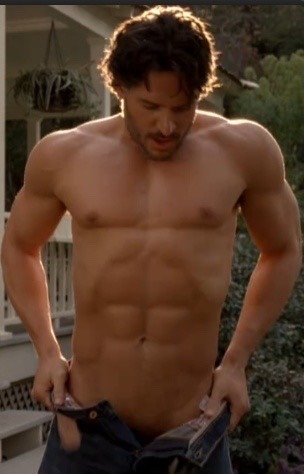
#joe manganiello#true blood#sexy hunk#fit hunk#handsome hunk#abs & pecs#smooth torso#big arms#muscle stud#scruff
47 notes
·
View notes
Text
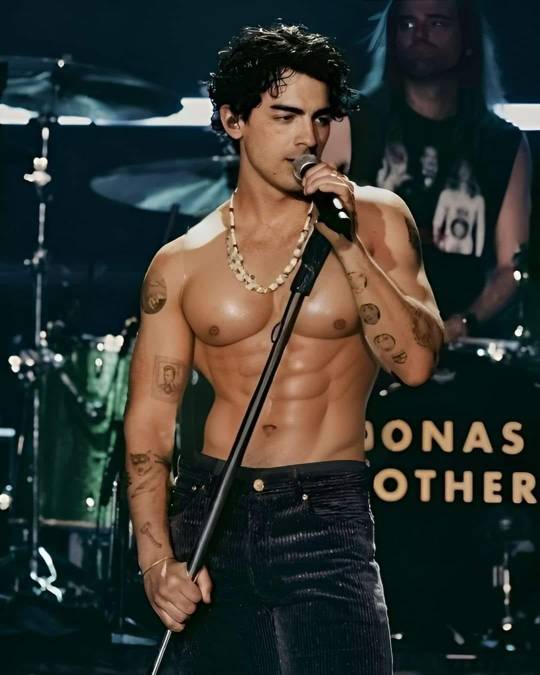
Joe Jonas
19 notes
·
View notes
Text



#bikini#men in bikinis#blue bikini#joe snyder#six pack#adonis belt#male abs#navel#male navel#bellybutton#male bellybutton#strike a pose#sexy pose#joe snyder bikini#six pack abs#male torso#smooth torso
78 notes
·
View notes
Text

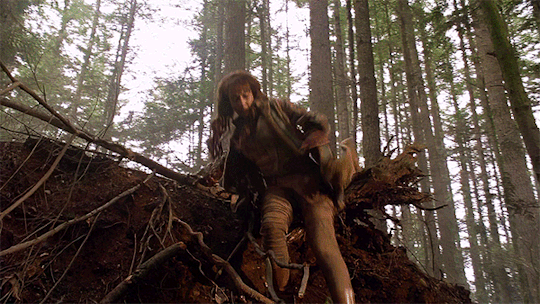
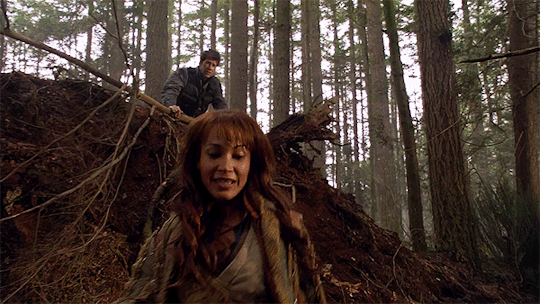

#stargate atlantis#sga#john sheppard#john “really smooth” shappard#teyla emmagan#teyla “patience of a saint” emmagan#1x01 the rising#joe flanigan#rachel luttrell
132 notes
·
View notes
Text

Can you name all fifty women?!?!!!?
#cha cha real smooth#drawing#nowhere king#half life gman#gman#daughter#warframe#kaelli#blue girl#badeline#celeste#madeline celeste#hunter toh#hunter noceda#hunter#joe biden#doug rattmann#portal#portal 2#half life#half life 2#the owl house#autism#there is some#digital art#fanart#tw ed sheeran
25 notes
·
View notes
Text
'A writer is an essentially lonely person. Someone, in fact, who usually prefers to be alone. Except when they start to realize that perhaps they became a writer precisely because of that inherent loneliness in the first place. This seems to be the case for the mononymous Adam (Andrew Scott), living practically alone in a new building that still has yet to lease out any of its apartments to fresh tenants. The apartment tower seems to lie just out of reach of London, though Adam and his soon-to-be-lover, Harry (Paul Mescal), keep referring to how they live “in” London. Indeed, Adam admits that he’s the last of his friends to remain “in” the city, with everyone else surrendering to the inevitable move to the country, where they can properly raise their families. Adam, being a gay man, automatically counts himself out from “that life.” The so-called conventional one, that is. Because, even for as “modern” as these times are supposed to be, there are still so many judgments and limitations projected onto the LGBTQIA+ community. And for a man of Adam’s generation (X), there remains so many lingering insecurities about his sexuality as a result of a childhood spent not only in the “wrong” era to be gay, but the wrong place as well. For Thatcher-run Britain wasn’t exactly open and inviting to the homo set (any more than Reagan-run America was).
Which is why homosexuality started to feel like an “underground movement” rather than a mere sexual preference. The illicit nature of it, particularly in the late 70s and early 80s, served as a means to condition many gay men to get off on the secrecy and anonymity aspects of it more than the sex act itself. Not quite knowing how to “function” sexually once things became slightly less taboo. This is the transitional mind fuck Gen X gay men were subjected to, enduring the repression of sexuality in the 80s, the AIDS scare that lasted from the beginning of that decade and well into the mid-90s and the sudden about-face toward total gender and sexual fluidity in the twenty-first century. It would be enough to give anyone sexuality whiplash, particularly a British person, with their background so fundamentally steeped in stodginess and restraint. This is the place Adam (whose biblical name feels deliberately tongue-in-cheek [no BJ pantomime intended]) is coming from. And it’s compounded by the fact that he’s partially “stuck” at the age he was when his mother (Claire Foy) and father (Jamie Bell) both died in a car accident on Christmas Eve of 1987 (this year is also significant as it’s when the book the film is based on, Strangers by Taichi Yamada, was released).
Our introduction to Adam is one of palpable loneliness as writer-director Andrew Haigh (known for Weekend and Looking, among other things) shows him staring longingly out of his floor-to-ceiling glass window at the outline of London. Which is, again, just beyond his reach. The city hasn’t fully expanded to his neck of the woods quite yet, though with rising prices and a shortage of housing, London will make it to his “outskirts” soon enough. The building, in fact, was actually shot in East London’s Stratford. Which is at least forty-five minutes’ worth of travel into Central London. His perennial position as an outsider is thus solidified to viewers geographically as well. This “outsiderness” extends even to his chosen profession as a writer (though, as he says, not a “proper” writer, but one for TV). This being the most voyeuristic kind of profession there is. A skill rooted in observation and recording. Never being quite “in the story” yourself, though constantly trying to put “a version” of who you think you are in it. That Adam chooses to write scripts wherein he can control the narrative also has Psych 101 implications. Since he couldn’t control the death of his parents or the way in which he was treated by homophobes in his youth. But he can control everything in the scenarios he comes up with on the page.
Unlike trying to control Harry’s direct approach one evening after seeing Adam so many times staring up at his window from down below. This being the umpteenth time he’s done so after a false fire alarm goes off and Adam is the only person (out of two) foolish enough to fall for it by vacating the building. Knocking on his door once Adam goes back inside and essentially begging to, er, enter, Harry makes a final effort to win Adam over by riffing on Frankie Goes to Hollywood’s “The Power of Love” with the line, “There’s vampires at my door.” This specifically alludes to the lyrics, “I’ll protect you from the hooded claw/Keep the vampires from your door.” While Harry likely wouldn’t have any idea what that song is (if we’re to go by Mescal’s own cusping between millennial and Gen Z age of twenty-eight), it’s nice to think that he could be attuned enough with British pop music’s past to make such a casual reference. To that end, there is a moment where he tells Adam he wants to “watch old episodes of Top of the Pops from before I was born” with him. Sit on the couch eating takeaway together like a right proper couple that’s surrendered fully to the dull comfort of monogamy. Because, yes, even the gays have settled for it by now. Gotten used to the idea that monogamy is for everyone. Even though, as Henry Willson (Jim Parsons) in Hollywood put it, “Sure, holding a guy’s hand in public, walking down the street, you know, you wait for a brick in the back of the head. It doesn’t come. Well, then, before you know it, your guy wants to play house. Have you ever spent a Saturday picking out some cheerful, daffodil-colored linoleum for the kitchen? I have, Ernie. And it is enough to make you wistful for the days of secretive sodomy.”
Adam is not necessarily “that type of gay,” but he is very clearly still imbued with the “gay guilt” of his generation. This being one of the reasons why he refuses Harry’s initial forward advances. That and, well, his heart sort of had to close entirely after his parents died. An automatic defense mechanism against ever attaching again. What with getting so badly burned the first time around via every person’s most formative attachment: the one with their parents. This is why Adam seeks so desperately to return to the past—the only known period in his life where he still had two (theoretical) protectors.
While Adam tries to wrap himself as much as possible up into the past by writing about it in screenplay form, he doesn’t seem to realize that he’s been trapped in it for quite some time. Perpetually locked inside that traumatic period of his life. Not just because of his parents’ death, but because losing them, in a certain sense, kept him frozen in a false identity. That is, a false hetero identity. One that didn’t allow him to ever fully be himself, or rather, be known as his true self. Because, although it’s “liberating,” in a way, to lose your parents and be forever free of any judgments they might have over you, it also means that you’ll never know if that formerly hidden part of yourself might have actually been accepted and embraced. As Haigh stated, “What I’ve always been interested in doing, and especially with this [film], is talking about queerness in relationship to family, and how complicated it can be in relationship to family…especially if you grew up in a generation of the 80s and into the early 90s, where it was very different than it is now—thank God.” And yet, there are times when it doesn’t seem that different. And the fact that a still-young Harry can recall his own childhood being rife with anti-gay sentiments (“It’s probably why we hate [the word] ‘gay’ so much now. It was always like, ‘Your haircut’s gay.’ Or, ‘The sofa’s gay.’ ‘Your trainers are gay, your school bag’s gay’”) speaks to how “drastic change” didn’t occur until very recently (something the present generation of twinks takes endlessly for granted).
This is part of why, when Adam tells his mother about his sexuality, she can’t believe he would actually “choose” such a life. Such a lonely life, at that. Still trapped in her 1987 Britain mentality, she asks, “Aren’t people nasty to you?” He assures, “No, no. Things are different now.” She asks again, “So they aren’t nasty?” He shrugs, “Not allowed, anyway.” But, of course, as Trump supporters (and Trump himself) have shown, people always find ways of getting around things that “aren’t allowed.” When Adam also informs her that men and women can marry the same sex now, she balks, “Isn’t that like having your cake and eating it?” Turns out, his confession to Mother isn’t going as well as he thought. Is actually bringing him a worse kind of pain than before. Compounded by her saying, “Oh God, what about this awful, ghastly disease? I’ve seen the adverts on the…on the news and with the gravestone.” “Everything is different now,” he insists again. Or so we would like to believe…
In an interview with Time, Haigh addressed one of the criticisms the LGBTQIA+ community has accused the movie of, which is that it reemphasizes the notion (which was only just starting to slightly go away) that being queer is the most isolating and alienating experience a person could have. But Haigh feels differently about the underlying message of his film, stating, “I understand that that can be an interpretation. Personally, I don’t feel that. There is hope in the fact that he has understood that, basically, he is capable of being in love and being loved and being there for someone else that might need him in that moment. By the end of the film, to me, it is basically saying that what is important in life is love in whatever way you manage to find that, whether it’s in a relationship, whether it’s with your parents, whether it’s with a friend. You go through life finding love, losing love, and finding it again.” And Adam has found it again, however ephemerally, with his spectral parents.
As for Adam’s mother, the more she thinks about it, the more his gayness makes sense to her. He was so “odd” and “sensitive,” after all. And apparently always trying to run away. When she asks where he was trying to run away, he tells her that he reckons London. Making him yet another Bronski Beat cliche. Luckily, Haigh stops short of featuring “Smalltown Boy” in the movie, instead opting for a “less overt” queer band in the form of Pet Shop Boys. Who have never much talked about their sexuality (why bother when all of their music is dripping with the subject and “lifestyle”). But as recently as their latest single, “Loneliness,” it’s clear the duo knows all about the distinct kind of loneliness that a man such as Adam suffers from. A loneliness that his mother is also convinced gay men are more prone to, even if, as Adam asserts, “Everything is different now.”
The past itself is, alas, as much of a ghost as his parents are. And it’s a kind of haunting that Adam seems to relish for its unique sting of pain-pleasure. For example, listening to Fine Young Cannibals’ “Johnny Come Home” as he writes, “EXT. SUBURBAN HOUSE, 1987” on his computer, it’s easy to see that the past is the present for Adam. As it is for many other people who prefer not to admit that to themselves. Even Adam tries not to fully admit it aloud, brushing aside Harry’s heartfelt apology when he finds out that Adam’s parents died in a car accident just before he turned twelve. “It was a long time ago,” he tells Harry. “Yeah, I don’t think that matters,” Harry replies. And it doesn’t. For trauma and woundedness never really go away. Especially when ceaselessly suppressed.
And yes, listening to the music from his childhood is a key part of crawling into the “comfortable” pain of his youth. Comfortable because it is familiar. Seeing his room just as it was when he was a preteen leads him to thumb through records like Erasure’s Circus and Frankie Goes to Hollywoood’s Welcome to the Pleasuredome (which “The Power of Love” appears on). Even when Adam goes out to a club with Harry, the song playing for the dance floor, Joe Smooth’s “Promised Land,” is straight out of 1987. Everywhere he goes, that year, that time in his life haunts him. At one point during post-coital candor, he muses to Harry, “Things are better now, of course they are, but…it doesn’t take much to make you feel the way you felt.” It reiterates what he already told his mother, but with the admission that, if you grow up a certain way, are conditioned to have a certain “look over your shoulder” response to people, it doesn’t ever truly dissipate. Even in the late 90s, when things were starting to shift more palpably, especially with AIDS “calming down,” a Gen X man like Adam was never truly going to feel “safe” enough to be “himself.”
Talking of the 90s, Haigh’s decision to include 1997’s “Death of a Party” by Blur as the soundtrack to a very trippy portion of the club sequence is also pointed. For, in addition to Blur speaking about the end of Britpop’s reign, this song has long been regarded as a metaphor for AIDS. After all, gay men were only too happy to party in the late 70s and early 80s…until an unknown disease, a “mysterious illness” started making people—primarily “fags”—drop like flies. So much for the “party.” A word Madonna famously included as part of an AIDS awareness insert placed among the liner notes of her Like A Prayer album with the phrase, “AIDS Is No Party!” In other words, don’t think you can go around fucking freely as you used to in the days before the novel virus. With AIDS came yet more cannon fodder for suppression. To turn inward and avoid one’s desires altogether. As Adam seemed to do, telling Harry, “I’d always felt lonely, even before [my parents died]. This was a new feeling. Like, uh, terror. That I’d always be alone now. And then, as I got older, that feeling just…solidified. It just, uh, it did not…” He motions toward his heart after trailing off, finishing the thought with, “…here all the time.” Harry looks at him with teary-eyed empathy, prompting Adam to continue, “And then losing them just got tangled up with all the other stuff. Like being gay. Just feeling like…the future doesn’t matter.” Of course, it also felt like it didn’t matter when, as a gay man, death was all around. Pervasive. Perhaps, in some sense, Adam could even associate his parents’ death with the “gay disease” that caused everyone who came into contact with “queers” to die.
Getting the chance to tell his parents—even if only their ghosts—who he really is proves to be, if not “cathartic” then at least a release. When Adam’s father tells his son that he’s proud of him, Adam replies, “I haven’t done anything to be proud of. I’ve just muddled through.” His father rebuts, “No, but you got through it. Some tough times, I’m sure, and…you’re still here.” Even this, too, feels like a nod to the generation of gay men who were not only mercilessly ridiculed, but also forced to watch so many of their own fall prey to the cruelest kind of death. To survive through something like that would, of course, serve as a lingering trauma unto itself. Indeed, there are times when the viewer might think that Adam himself is a ghost who doesn’t know it yet (Bruce Willis in The Sixth Sense-style), that maybe his telltale “fever” was a symptom he had while dying of AIDS. But no, that’s not the Shyamalan-oriented element here. Instead, Adam is subjected to a much more heartbreaking fate.
One that only Frankie Goes to Hollywood (“The Power of Love” is a subliminal essence during the tripped-out club scene as well, its presence seemingly omni—a punctuating motif to cut through the loneliness) can try to even vaguely soothe. The band’s lead singer, Holly Johnson, was himself diagnosed with HIV in 1991. But it was even before then that he sang on “The Power of Love,” “Dreams are like angels/They keep bad at bay, bad at bay/Love is the light/Scaring darkness away/I’m so in love with you/Purge the soul/Make love your goal.” Even when you’ve been burned in such an inexplicably horrible way by it in the past.'
#All of Us Strangers#Frankie Goes to Hollywood#The Power of Love#Andrew Haigh#Blur#Death of a Party#LGBTQIA+#Andrew Scott#Paul Mescal#Claire Foy#Jamie Bell#Strangers#Taichi Yamada#Weekend#Looking#Pet Shop Boys#Always on My Mind#Fine Young Cannibals#Johnny Come Home#Joe Smooth#Promised Land#Erasure#Circus#Welcome to The Pleasuredome#Holly Johnson#AIDS
3 notes
·
View notes
Photo


Stranger Things | 4.09
[Phase] Four. We head into Vecna's hopefully newly bat-free lair, and... flambé.
#stranger things netflix#Strangerthingsedit#Maya Hawke#Robin Buckley#Natalia Dyer#Nancy Wheeler#Joe Keery#Steve Harrington#Stranger Things Spoilers#GIF set#Mine#Not Revolution#I love this so much#I love that it looks like they've done this before#it's so smooth#and OMG Nancy has grown up so much since S1#she's full Ripley now#and it's fantastic#and I like that there isn't really a leader of the group - everyone gets to step up when needed#and the last 2 eps needed Nancy got to be team captain#at least of the Hawkins side of things#I really did like revolving through the different character stories going on#you never got sick of anyone#(Doesn't mean I couldn't watch a whole season of just Steve Nancy and Robin solving mysteries and fighting evil)#I also love that everyone from Joyce and Hopper to the kids to Steve Nancy and Robin have just accepted this is their responsibility now#There's no one else#the government is completely useless#most adults are completely useless#they're all that stands between Vecna and the end of the world
502 notes
·
View notes
Text
surprised nobody ever talks about those test animations for an animated adaptation of goncharov that got cancelled because of that copyright dispute between martin scorsese and matteo JWHJ0715 back in 2002, i dug up the ice pick joe one from my old computer, perhaps the rest is lost media?
#goncharov#martin scorsese#unreality#ice pick joe#if you know where the audio is from you know where the audio is from.#analiceoriginal.png#jokes aside im sorry the eyeball throw isnt smooth at all i was so tired i spent the whole day drawing lmao#joe my beloved#i kin him.#'did you really make an entire animation of a character that doesnt even exist' uh#well! haha uh#think my moms calling me!!!#goncharov 1973#animation
164 notes
·
View notes
Text
SOOOO PROUD OF MY GUYS!!

P3 for Mr smooth operator. 🌶️😎

P4 for Lord Perceval. 🤝😎🥹

Proud! Proud! Proud!!
19 notes
·
View notes
Text

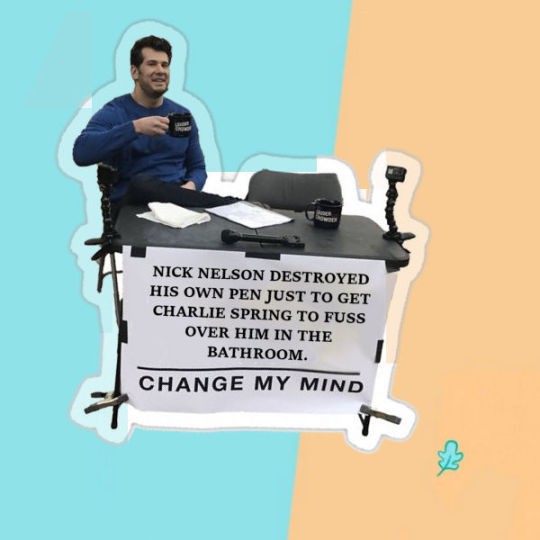
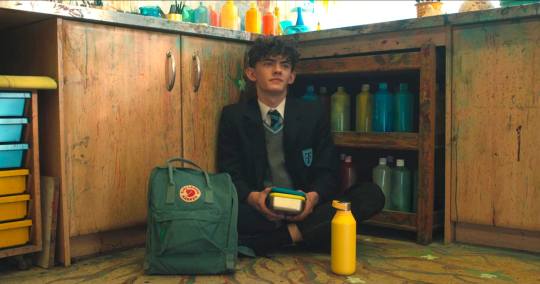
#heartstopper#nick nelson#smooth criminal#charlie spring#change my mind#nick nelsons broken pen#new school fashion?#bitch please#rss feed#instagram feed#kit connor#joe locke#shitpost
35 notes
·
View notes
Text
Green Day Song Tierlist! :D
You ever wanna spend approximately 12ish hours listening to their entire discog and rank the individual songs Or speedrun the tierlist bc you already know what songs you're gonna place where for funsies? WELL DO I HAVE THE TIERLIST FOR YOU!! 🫵🫵🫵🫵🫵🫵🫵🫵
In my bedridden, sickly victorian child-eqsue condition, I made this dumb thing! It's pretty much all Green Day songs plus b-sides and demos with this exception:
- No repeats of tracks (Welcome to Paradise is counted once, and demo versions of released songs, for example, The Grouch (Demo), aren't counted but the You Irritate Me (Demo) is!) Also extends to live versions, unless the live version is the only existing recording (ex: Cigarettes and Valentines lol)
Other than that, that's it! At least I hope it is lol. If by some chance I missed one, feel free to let me know so I can update it ^^! I plan to update the list anyway once Saviors is released :D And maybe update it immediately after the listening party if my ailment clears so i can go lmao. Now what does this monstrosity look like? Like this!

Lazy Bones and Too Dumb To Die supremacy.
Anyways. Wanna make ur own? Here ya go!
Don't have ur own playlist of their discography to listen along to/use to remember which songs are bangers and which ones you detest?? No problem! This is the playlist I made and use all the time, plus fixed up just for this :D
Only song you'll have to find (cough) is Favorite Son bc spotify is Mean, but anyways!!! A shorter link to the playlist is in the description of the tierlist! Now show me ur worse/bad/good/great takes B) and have fun :DD
#WAHH LONG POST SRRYYYYYYY#BUT I TEND TO OVER EXPLAIN AND I COULDNT FIND A WAY TO SAY EVERYTHING IN A CONCISE MANNER WAAAHHH#trust me this shit was Longer sdfhkgjdflsgjshdfkgjh but it's literally nothing important Just a tierlist fml#of which there's diff variants of their discog (songs wise) but none i saw were updated w saviors singles soooo#i take the wins where i can ok#anyways its DONE AAAA#necessary tags to reach ppl. hopefully. maybe. allegedly. supposedly sdlkfjhgsjdf#green day#billie joe armstrong#mike dirnt#tre cool#1039 smooth#kerplunk#dookie#insomniac#nimrod.warning#international superhits#shenanigans#american idiot#21st century breakdown#green day trilogy#uno dos tre#revrad#revolution radio#father of all motherfuckers#foamf#green day saviors#saviors#weeeee i do my lil yippee dance ok i get food now and take meds
9 notes
·
View notes